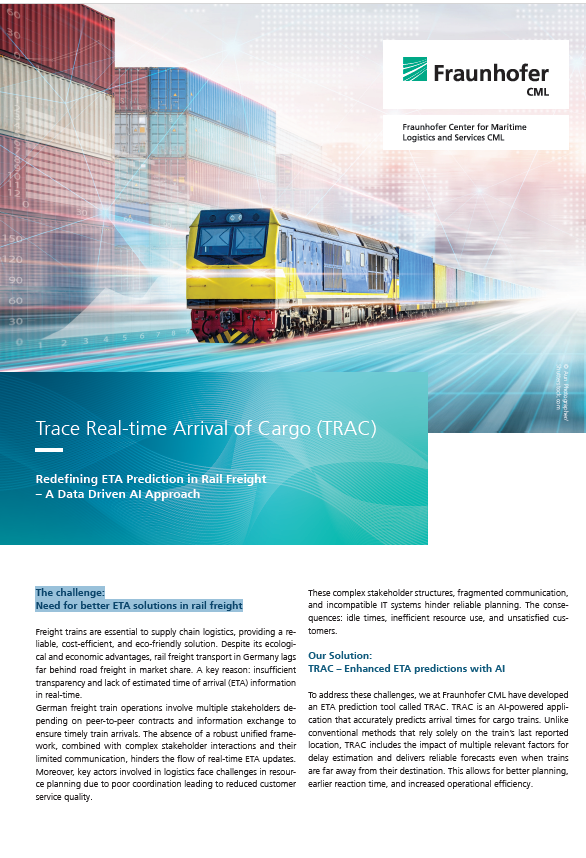
Redefining ETA Prediction in Rail Freight – A Data Driven AI Approach
Freight trains are essential to supply chain logistics, providing a reliable, cost-efficient, and eco-friendly solution. Despite its ecological and economic advantages, rail freight transport in Germany lags far behind road freight in market share. A key reason: insufficient transparency and lack of estimated time of arrival (ETA) information in real-time.
The challenge: Need for better ETA solutions in rail freight
Our solution: TRAC – Enhanced ETA predictions with AI
 Fraunhofer Center for Maritime Logistics and Services
Fraunhofer Center for Maritime Logistics and Services











































